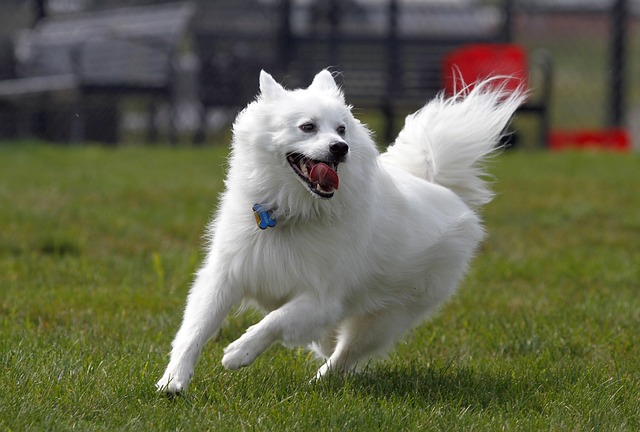


The American Eskimo Dog is a fluffy, intelligent, and agile breed known for its beautiful white coat and lively personality. Despite its name, the American Eskimo Dog is not from Alaska, but rather was developed in the United States. This breed is part of the Spitz family, which includes other dogs like the Samoyed and the Alaskan Malamute. American Eskimo Dogs come in three sizes: Toy, Miniature, and Standard, each with distinct characteristics but all sharing the same charming traits.
The American Eskimo Dog's origins can be traced back to the European spitz-type dogs brought to the United States by German immigrants. They were originally bred to be working dogs, performing tasks such as herding and pulling sleds. Over time, the breed gained popularity as a companion animal due to its playful and affectionate nature. The name "American Eskimo" was adopted in the early 20th century, likely due to the breed's white coat and northern origins, though it has no direct connection to Eskimos or the Arctic regions.
The American Eskimo Dog has a distinctive appearance with its dense, double-layer coat that is typically pure white or occasionally cream. Their fur is thick, soft, and fluffy, requiring regular grooming. The breed has a proud, elegant stance, a well-proportioned body, and a strikingly bushy tail that curls over its back. Eyes are dark and almond-shaped, contributing to its alert and intelligent expression. Their ears are triangular and stand erect. The breed comes in three sizes: Toy (up to 10 inches), Miniature (10 to 18 inches), and Standard (over 18 inches), with varying weights that reflect the size range.
American Eskimo Dogs are known for their friendly, playful, and affectionate temperament. They are highly social and bond closely with their families, often forming strong attachments to their human companions. This breed is also intelligent and curious, which makes them excellent problem-solvers. However, their strong bond to their owners means they can sometimes suffer from separation anxiety if left alone for extended periods. They tend to be good with children and can be friendly with other pets when properly socialized. Though they are alert and can be protective, they are not typically aggressive.
American Eskimo Dogs are active and energetic, requiring regular exercise to stay happy and healthy. Daily walks, playtime in the yard, and interactive games like fetch or agility training are ideal for keeping this breed mentally and physically stimulated. Their intelligence means they thrive on activities that challenge them and keep them engaged. While they can adapt to apartment living, they do best in environments where they can get plenty of activity and mental stimulation.
Thanks to their intelligence, American Eskimo Dogs are generally easy to train, but they can be independent and sometimes stubborn. Positive reinforcement methods, such as treats and praise, work best to motivate them. Early socialization is important to ensure they grow up to be well-rounded and confident dogs. Exposure to different environments, people, and other animals is essential to prevent shyness or overprotectiveness. This breed excels in dog sports like obedience, agility, and herding, making training an enjoyable and rewarding experience for both the dog and owner.
American Eskimo Dogs are generally healthy but can be prone to certain health conditions such as hip dysplasia, progressive retinal atrophy, and patellar luxation. Regular veterinary check-ups, a balanced diet, and maintaining a healthy weight are essential for their well-being. Their thick coat requires consistent grooming, including brushing several times a week to prevent matting and occasional baths to keep their coat clean and shiny. Regular ear cleaning and teeth brushing are also important to maintain their overall health.
The average lifespan of an American Eskimo Dog ranges from 12 to 14 years, though many live well into their teens with proper care. Their lifespan can be influenced by factors like genetics, diet, exercise, and healthcare. Regular check-ups with a vet and maintaining a healthy lifestyle can help them live longer, happier lives.
© copyright Dog Compendium 2024 - 2026